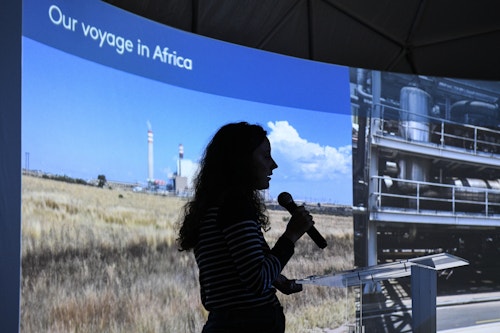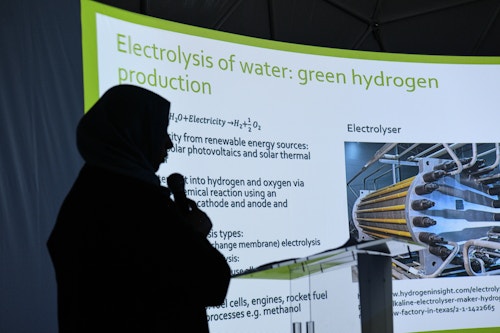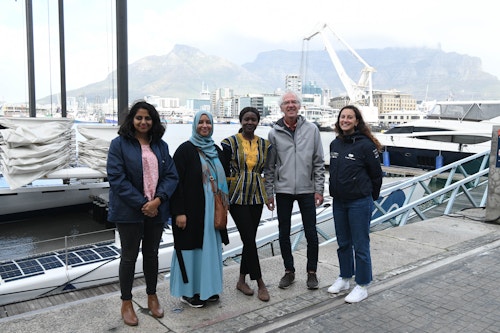Beatrice Cordiano, our onboard scientist and expert in sustainable development and energy, opened the conference by describing the technologies that make up Energy Observer vessel's energy mix, from production to energy storage, with a combination of renewable energies and green hydrogen produced on board out of seawater.
This was an opportunity to share the audiovisual content produced ahead of Energy Observer's arrival in Cape Town, and to understand the challenges of the energy transition in South Africa, where about 85% of electricity production is based on coal, as well as the solutions for greening the country's energy production.
Naseeba Abbas, PhD student and lecturer in chemistry at the University of Cape Town, then presented the potential of green hydrogen in South Africa.
In particular, she returned to the classification between green and grey hydrogen, as well as the need to anticipate the environmental consequences of its production at larger-scale.
Ziba Raian, PEM (Proton Exchange Membrane) electrolysis catalyst researcher, shared the progress of her work in the context of the national strategy for the development of green hydrogen. The issue of iridium, which makes up the electrolyzer membrane, is central to her research: she discovered how to achieve a 9% reduction in the amount of iridium required in electrolyzers. The aim? A better use of the rare metals needed to develop green hydrogen production technologies.
This is the question raised by Professor Harro Von Blottnitz, Director of the Energy Systems Research Group at the University of Cape Town. He wonders how changes in South Africa's energy sector will impact the economy and society as a whole. To achieve carbon neutrality, South Africa needs a lot more electricity!
The conference concluded with Iyaloo Akuaake, a specialist in the field of green hydrogen in Namibia, which has positioned itself as a major player in the region on this subject, with exceptional solar and wind resources that can foster the development of a hydrogen economy.
An advantage counterbalanced by the resource curse theory, unfortunately well known on the continent. Africa possesses many minerals, as well as gas and oil reserves, but the benefits have not been forthcoming for its society and the development of its countries. Namibia has the opportunity to be a leader in green hydrogen on the African continent, but it is essential to develop a green hydrogen strategy to maximize the benefits for the country.
"Governance has a very big role to play on how to channel the revenues to the right purpose. In many African countries, we have a lack of transparency and governance on how revenues are used and in which pocket they will end".
A fascinating discussion which ended on our laboratory vessel, whose next destination will be Namibia as the conclusion of its African chapter.



